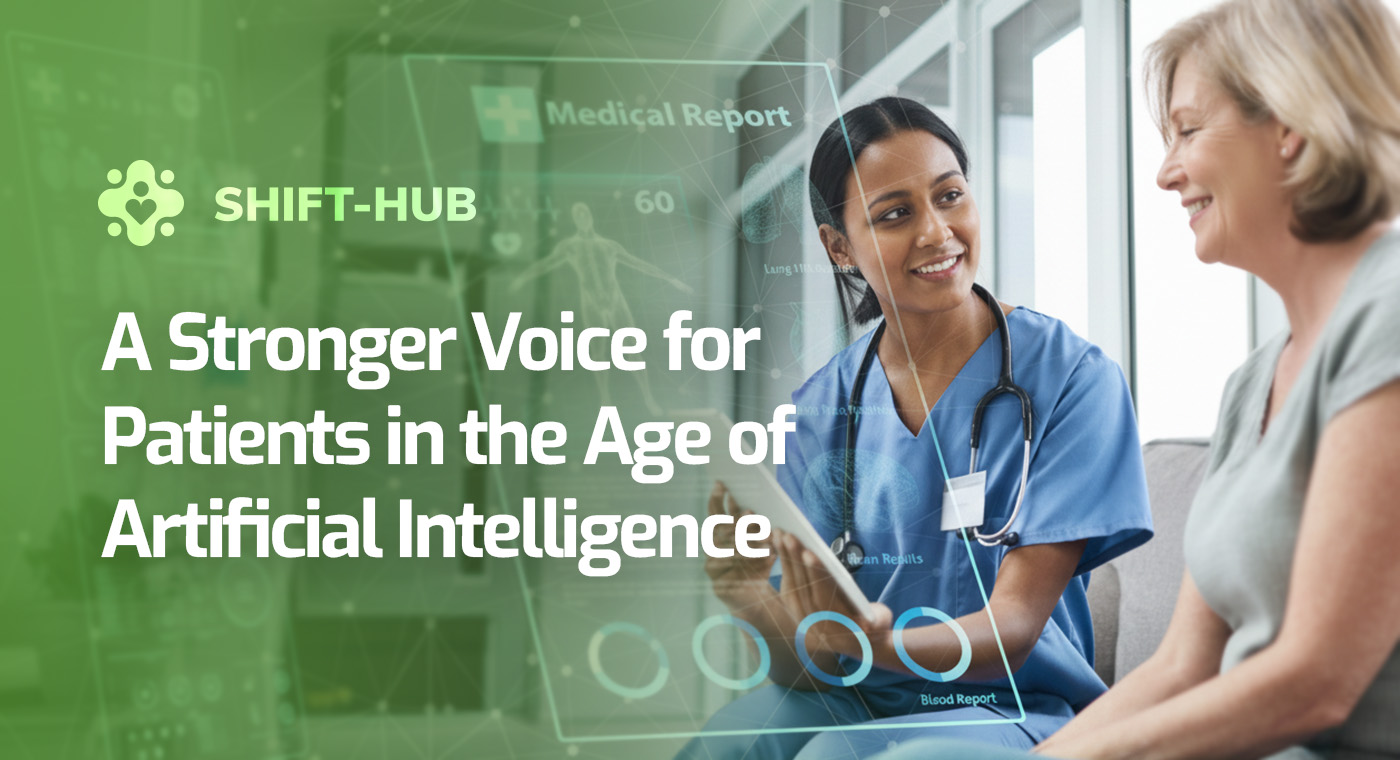by Luminita Vâlcea, Executive Director COPAC
In a world where technology speaks louder every day, the patient’s voice risks getting lost in the background noise. But real innovation in healthcare isn’t just about algorithms or data. It’s about people — about how we listen, how we understand, and how we build trust. We can call them patients or citizens.
Listening before designing
Artificial intelligence brings incredible opportunities. It helps doctors see patterns, make faster decisions, and reach people in ways that were once impossible. Yet these tools only become truly valuable when they are built together with those they are meant to serve — the patients.
Patients have stories, emotions, ideas, not only symptoms. When we invite them into the process — when they help shape apps, test algorithms, and give feedback — we move from technology for people to technology with people. That’s when trust begins.
A recent survey, applied by COPAC showed that most people in Romania are open to using AI in healthcare. This is encouraging — but it also comes with responsibility. People want to be part of the conversation, to know how their data is used, and to have a choice. And just as importantly, those who prefer not to use AI tools should have the right to say no, without being excluded or treated differently. Because autonomy is not an option — it’s a right.
The new dialogue between doctor and patient
AI changes not only how we treat disease, but how we communicate. The future of care is not a one-way street. Doctors are becoming interpreters — helping patients understand what an algorithm suggests, what it doesn’t know, and how it fits into their own story.
This is where digital empathy matters. We need to learn how to talk about uncertainty, to keep compassion at the centre, and to make sure that technology never replaces the human touch — it simply supports it.
Ethics, transparency, and European guidance
Across Europe, new regulations on AI in healthcare — like the AI Act (2024) — bring clear standards for safety, transparency, and accountability. The regulation will be applied by 2026.
At the same time, professional bodies such as the European Union of Medical Specialists (UEMS) and the Standing Committee of European Doctors (CPME) remind us of something fundamental: AI should always support, not replace, medical judgment. And the trust between doctor and patient should be endorsed, not comprised.
They also emphasise a crucial ethical duty: patients must be informed whenever AI tools are used in their diagnosis or treatment. This isn’t just a formality — it’s part of informed consent and of the respect we owe every person who entrusts us with their health. A patient may also refuse to allow a physician to involve AI in their treatment.Transparency builds confidence and confidence builds care.
Working together for meaningful innovation
Across Europe, new collaborative models show how co-creation can truly work. Living labs, Open Innovation workshops, and Demo Days bring together patients, doctors, researchers, and innovators to design technology side by side. These spaces prove that dialogue and empathy can shape smarter, safer, and more human-centred innovation.
In Romania, partnerships between patient organisations and medical universities are now exploring funding to create a permanent Living Lab — a place where patients, clinicians, and innovators can co-create, test ideas safely, and ensure that technology truly meets real needs. It’s a hopeful direction — one that puts people, not devices, at the centre of progress.
Trust — the real deal in digital health
At the end of the day, trust is the real deal. Without it, even the smartest technology won’t make a difference. With it, people feel seen, heard, and safe to take part in change.
Because no matter how fast innovation moves, healthcare will always be about people — about empathy, honesty, and connection. That’s what truly makes technology work for health.
This article is based on remarks shared by Luminita Vâlcea during the “Innovation and Medical Entrepreneurship” conference organised by the University of Medicine and Pharmacy “Carol Davila” in Bucharest.


